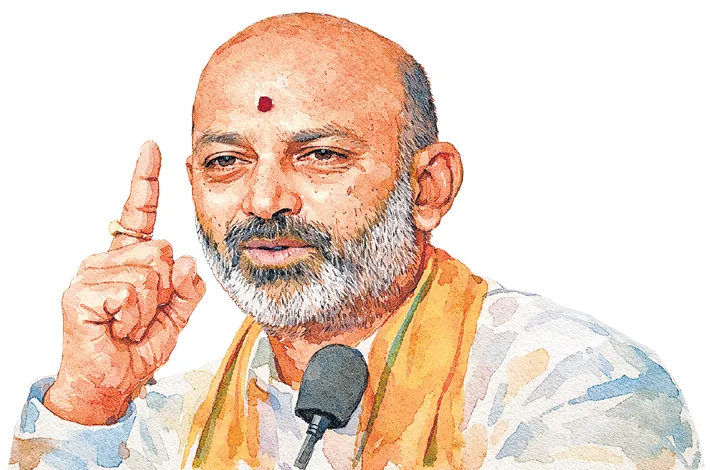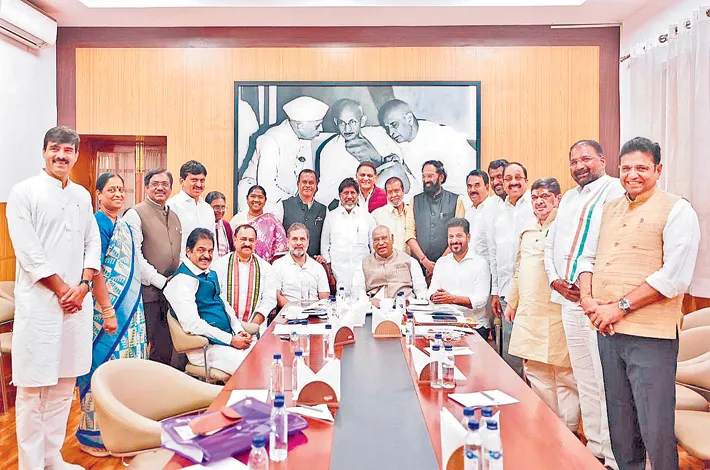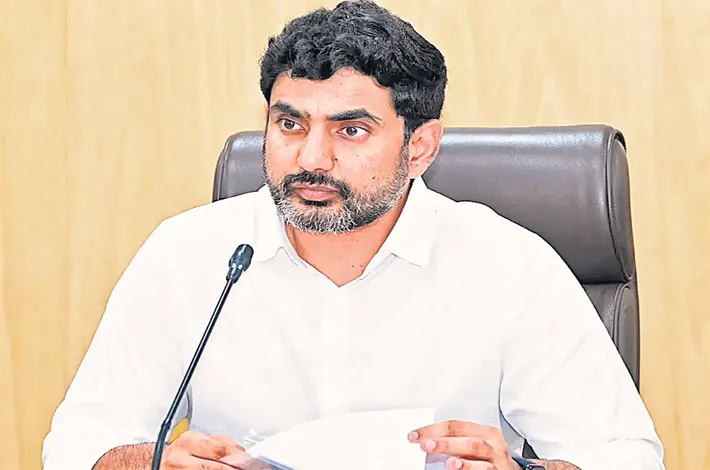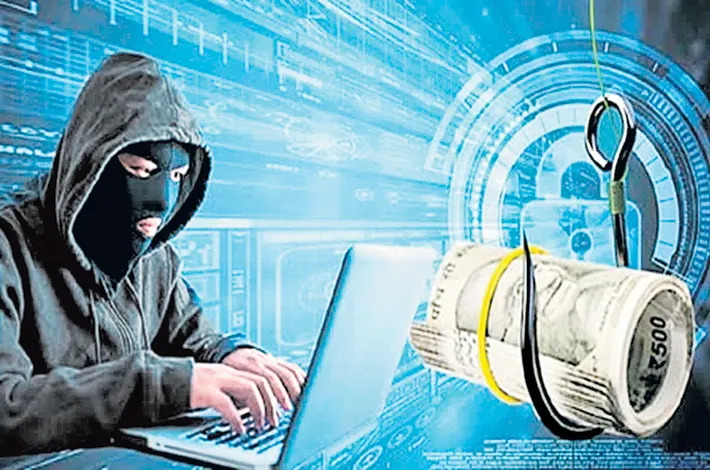Is ECI right in deleting election footage after 45 days?
23-06-2025 12:00:00 AM
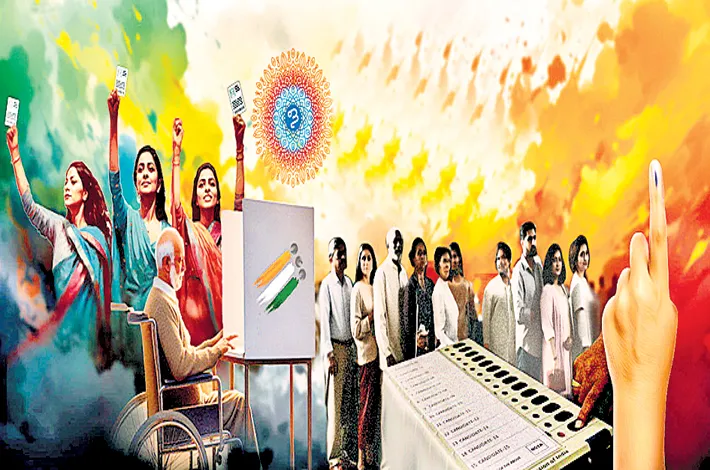
Retaining footage beyond this period is unnecessary and resource-intensive, as it cannot alter election outcomes.- O P Rawat, Former Chief Election Commissioner
It is a poison for democracy. -Rahul Gandhi
■ J&K Chief Minister Omar Abdulla criticized Congress for blaming the ECI only when it loses elections.
■ BJP spokesperson Sanju Verma urged Congress to accept Supreme Court rulings affirming the validity of Electronic Voting Machines (EVMs)
■ Association for Democratic Reforms (ADR) stated that reducing footage retention undermines election fairness
The Election Commission of India (ECI) has revised its guidelines, reducing the retention period for election-related CCTV footage from one year to 45 days, provided no legal challenges are filed within that timeframe. The decision, communicated to state chief electoral officers on May 30, 2025, aims to curb the misuse of such data for spreading "malicious narratives," according to the ECI. However, the move has ignited a fierce political debate, with accusations of undermining transparency and electoral integrity.
The ECI’s rationale hinges on the legal framework outlined in the Representation of the People Act, 1951, which allows election petitions to be filed within 45 days of result declaration. Former Chief Election Commissioner O.P. Rawat defended the decision, stating that retaining footage beyond this period is unnecessary and resource-intensive, as it cannot alter election outcomes without a petition. He emphasized that footage is preserved until the disposal of any filed petitions or for up to five years, whichever is earlier.
The ECI’s rationale hinges on the legal framework outlined in the Representation of the People Act, 1951, which allows election petitions to be filed within 45 days of result declaration. Former Chief Election Commissioner O.P. Rawat defended the decision, stating that retaining footage beyond this period is unnecessary and resource-intensive, as it cannot alter election outcomes without a petition. He emphasized that footage is preserved until the disposal of any filed petitions or for up to five years, whichever is earlier.
Rahul Gandhi’s Allegations Fuel Tensions
Congress leader and Leader of Opposition in the Lok Sabha, Rahul Gandhi, sharply criticized the ECI, labeling the decision as evidence of a “fixed election” and a “poison for democracy.” In a post on social media platform X, Gandhi accused the ECI of “deleting evidence,” particularly referencing alleged irregularities in voter turnout during the 2024 Maharashtra Assembly elections. He claimed an unusual 7.83% surge in voting (equating to 76 lakh voters) in the final hours, raising questions about the electoral process.
Gandhi’s allegations have drawn mixed responses, even within the INDIA alliance. Jammu and Kashmir Chief Minister Omar Abdullah, a key ally from the National Conference, criticized Congress for blaming the ECI only when it loses elections. “When you win, you don’t complain; when you lose, you blame the Election Commission. That’s plain hypocrisy,” Abdullah remarked, pointing to Congress victories in states like Karnataka and Telangana where similar processes were not questioned.
BJP Slams Congress for ‘Hypocrisy’.
The Bharatiya Janata Party (BJP) seized on Abdullah’s comments to accuse Congress of fabricating charges to deflect from electoral defeats. BJP national spokesperson Sanju Verma dismissed Gandhi’s claims, citing historical data showing comparable voter turnout increases in 2004 and 2009 Maharashtra elections, when Congress won. “In 2004, voter numbers rose by 4.69%; in 2024, it was 4.38%. Why cherry-pick data now?” Verma asked, urging Congress to accept Supreme Court rulings affirming the validity of Electronic Voting Machines (EVMs).
The BJP further highlighted the Chandigarh mayoral election case, where a BJP leader, Anil Masih, was found tampering with ballots. Verma noted that the party adhered to the Supreme Court’s directive to replace the mayor, underscoring their respect for judicial oversight.
Legal and Transparency Concerns
Political analyst and advocate Nikhil Jain, aligned with Congress, argued that the 45-day retention period is insufficient, especially given the possibility of delayed election petitions under Section 81 of the Representation of the People Act. “Courts often condone delays, but if footage is deleted after 45 days, what evidence remains?” Jain questioned, criticizing the timing of the ECI’s decision, which came shortly after Gandhi’s public scrutiny of the commission.
Non-political voices, such as the Association for Democratic Reforms (ADR), echoed concerns, stating that reducing footage retention undermines election fairness. Jain also pointed to cheaper storage technologies, questioning the ECI’s urgency to delete data when it had been preserved for a year until recently.
In contrast, political analyst Tashar Gupta argued that Congress’s selective outrage—questioning ECI’s integrity in states where it loses but not where it wins—creates public confusion. He noted internal Congress discord, with MP Karti Chidambaram expressing confidence in EVMs since 2004, contradicting Gandhi’s narrative.
As the debate intensifies, questions about electoral transparency and institutional trust remain unresolved. The ECI maintains that its decision aligns with legal provisions and practical constraints, but critics argue it risks eroding public confidence. With upcoming elections in Bihar and elsewhere, the controversy is likely to shape political narratives, as parties grapple with balancing accountability and operational efficiency in India’s democratic process.





